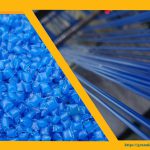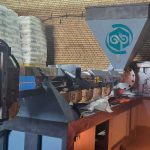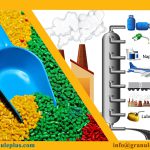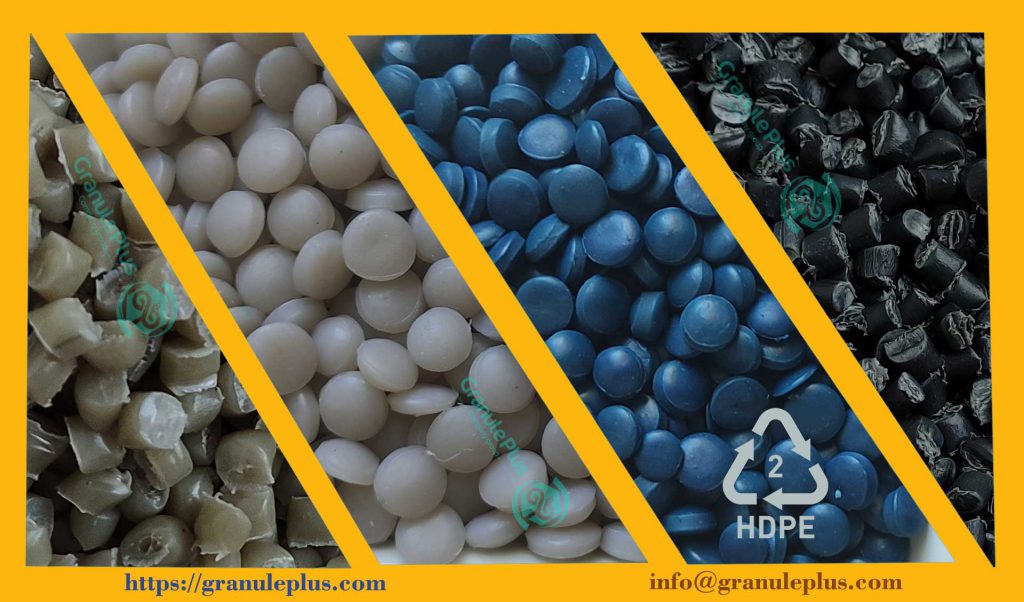
- Granuleplus
- September 3, 2023
- 11:51 am
- No Comments
Pipe granules
Getting to know pipe granules
The raw materials for the production of polyethylene pipes and tubes( pipe granules – PE) have a high variety. These pipes follow different standards and according to the granule of the polyethylene pipe, in which they are used, they have many variations; If these standards are followed with high sensitivity, it will increase the quality of the output product. Considering more than 30 years of experience in the field of plastic recycling as a producer of polyethylene granules, GranulePlus Company has the ability to be the supplier of pipe and tube granules requested by you, dear customers, with a reasonable price and high tonnage.
Polyethylene is one type of thermoplastic polymer that turns into a liquid at the melting point and solid at the freezing point. PE is the most common plastic that is widely used in industry today.
The production material of PE pipe has a very simple structure. This material is made of a combination of carbon and hydrogen. In fact, this substance is a long chain of hydrocarbons that are connected to each other.
What is polyethylene?
Polyethylenes are a type of polymer materials that are prepared in the refinery and during the polymerization process of ethylene monomer units. Polyethylene granules are suitable for various uses in rubber and plastic industries. These materials are produced in various commercial grades in factories and each one is used to produce a specific product.
Polyethylenes are produced in three commercial grades PE80, PE63 and PE100. Currently, two grades PE80 and PE100 are used to produce all kinds of plastic products, including polyethylene pipes. The price of these materials is much cheaper than other raw materials for making pipes, so it will be very economical to buy polyethylene pipes.
Each type of commercial polyethylene is divided into sub-categories that also have unique characteristics; For example, grade No. 3840 is used to make plastic tanks, or grade PX3 is suitable for producing irrigation pipes. The best type of polyethylene is PE100, which is used as a raw material in factories for the production of single-walled polyethylene pipes. PE80 type material is used to produce double-walled Carrogate pipe.
Properties of pipe granules
One of the unique characteristics of PE pipe granules is its high chemical resistance, hygienic and non-toxicity, thermal and electrical insulation, good impact resistance, corrosion resistance, good flexibility and lightness.
Polyethylene pipes (HDPE granules), which are made with high-quality polyethylene granule materials, have the characteristic of slow crack growth, so that if the smallest defect is created in its wall; The whole pipe will not be destroyed at once.
Due to the excellent properties of the raw materials, polyethylene pipes have outstanding properties that make them suitable for installation in various conditions. The transfer of potable water, sewage, chemicals, irrigation and water supply, gas supply, etc. is possible through polyethylene pipes in different dimensions.
The raw material of polyethylene pipe is a waxy and inactive solid and is produced from ethylene. One of the cheapest types of polymers is polyethylene, which is lighter than other polymers. Three categories of raw materials are used to produce polyethylene pipes, which have differences and are mentioned below.
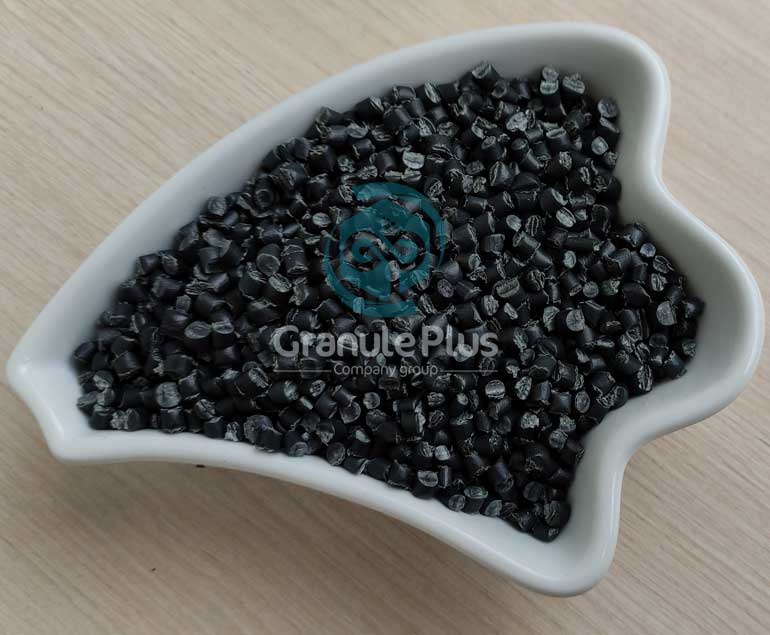
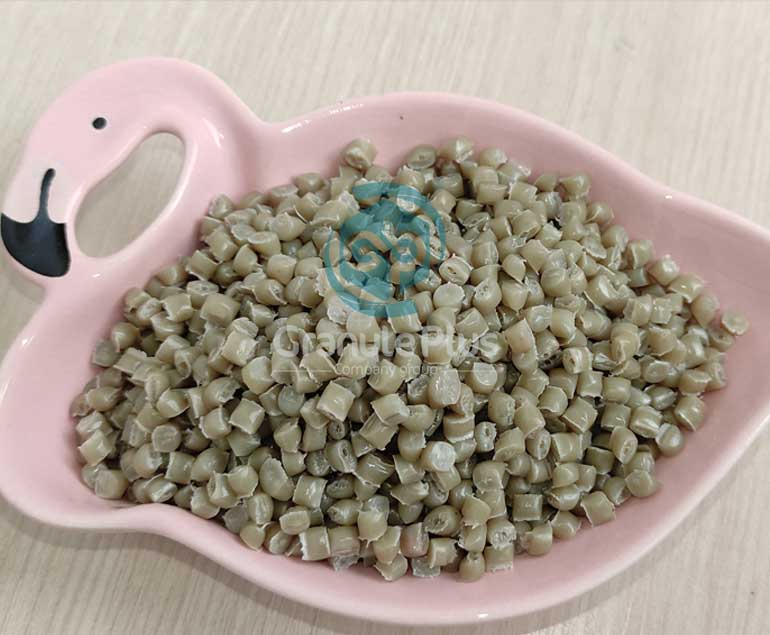
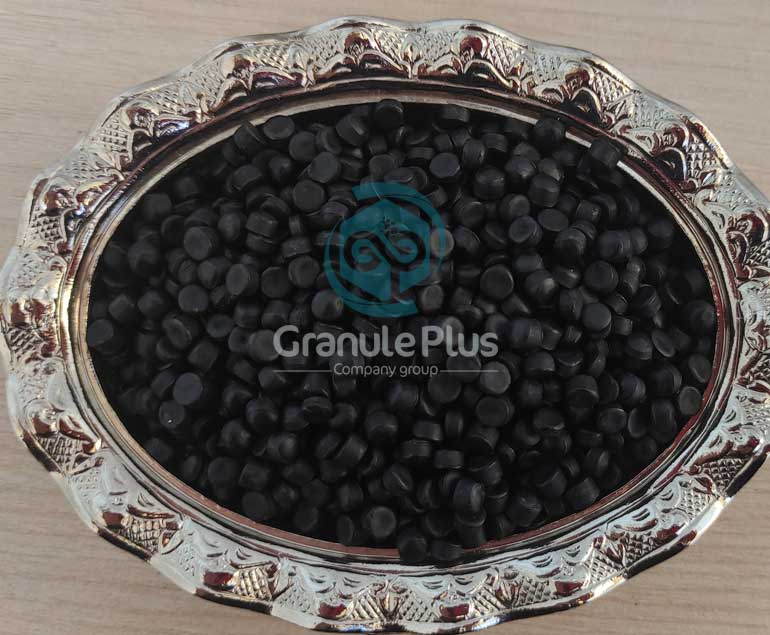
Preparation and production of polyethylene materials:
The raw materials of white polyethylene pipes are prepared by petrochemical companies, and black color is added to them during production. These materials are usually used in the production of grade B pipes.
Another type of polyethylene material is milled, which is obtained by grinding second grade polyethylene pipes. Some factories combine these grinding materials with new raw materials and use it to produce cheaper polyethylene pipes.
By grinding and granulating polyethylene pipes, GranulePlus factories are able to produce and supply compounds and pipe granules (recycled polyethylene) with the quality desired by the customer and at a competitive price.
Polyethylene pipe is divided into three categories according to the raw materials used: polyethylene 63 (PE63), polyethylene 80 (PE80) and polyethylene 100 (PE100).
Pipe granule grade PE63
One of the important features of this raw material for the production of polyethylene pipes is that it has a safety factor of 1.6. This material is heavier and has a higher thickness than the other mentioned consumables in the preparation of polyethylene pipe. The cost of production is higher when using this consumable compared to other types. Density of PE63 is less compared to the other two types.
The raw material PE63 is used in the production of sewage polyethylene pipes up to size 5; Using PE80 and PE100 reduces the thickness of the pipe and as a result it bursts. In the new standards, PE63 has not shown the necessary performance criteria, therefore, it has been included as an obsolete material.
raw material PE80
Today, the raw material PE80 has many applications in the pipe making industry; The reason for this was that the producers realized that by increasing the density of the raw material, more thickness and less weight can be achieved in production; This process led to the creation of pipes with higher pressure tolerance and lower production cost, and produced a cost-effective product. The safety factor of PE80 is equal to 1.25 and it has an average weight compared to the two materials PE63 and PE100.
Grade PE100
PE100 is one of the best materials in the production of pipes; this material is one of the newest and lightest materials in the production of polyethylene pipes. The pipes created by PE100 having high density have less weight and have shown a higher tolerance threshold against strong pressures. These features have increased their popularity and have been used in many applications. The safety factor in this article is 1.25.
Since 1990, this raw material has been approved in European countries as one of the standard raw materials in the preparation and production of polyethylene pipes and fittings.
The advantages of PE100 polyethylene pipe compared to other raw materials:
- Better processability and higher output and lower production costs
- Better flexibility for coiling, maintenance and pipe installation
- It has a higher resistance against slow crack growth and a high product safety factor
- It has high resistance against rapid crack growth
- Higher hydrostatic resistance
Essential points in the production of polyethylene pipes
It is not possible to use PE80 and PE100 materials in order to produce 4 bar polyethylene sewage pipes up to size 125 (5 inches); Due to the fact that the thickness of the pipes produced from these materials is low, they may burst and break. PE80 and PE100 materials are used for the production of high size pipes and working pressure of 10 and 16 bar.
For example, comparing 3-inch polyethylene pipe 10 bar with PE63 and 3-inch pipe with PE80 and PE100, these results were obtained; PE63 pipe has specifications such as 2.8 thickness and each meter weighs 12.2 kilograms; If the PE80 pipe has a thickness of 6.5 and each meter has a weight equivalent to 77.1; Also, PE100 pipes have a thickness of 7.6 and a weight of 46.1.
Buy polyethylene granule and compound in bulk from GranulePlus Company:
Since we are a polyethylene pipe manufacturer, we can produce the polyethylene you need in the form of compounds and granules in the desired grade and with the quality approved by you.
You can contact the sales manager of the company and also use the consultation form to get the price list of GranulePlus production factories.
Ways of communication with GranulePlus through:
whatsapp: +989194451528
Email: info@granuleplus.com
Telegram: @granulplus
Instagram: granulplus

